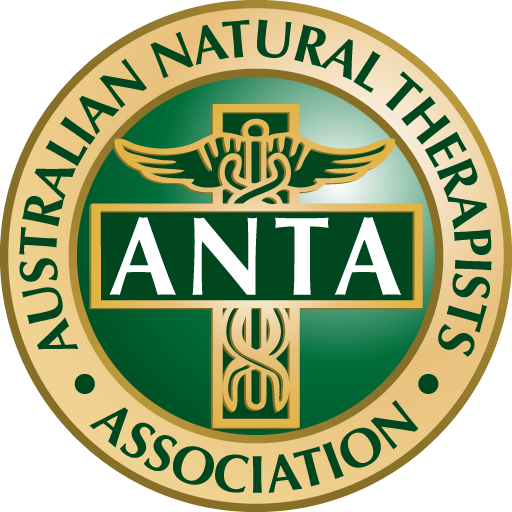Is herbal medicine a thing of the past?
The life expectancy of Australians is constantly increasing. We are living longer than ever before! This is largely attributed to modern, evidence-based medical practises and better hygiene. So is there still a place for herbal medicine in our current day and age? Or is it simply a thing of the past? After all, in 2015 the Australia Government’s Department of Health deemed that herbalism had no clear evidence of effectiveness. Furthermore, in 2019 herbal medicine was excluded from the list of modalities that receive private healthcare rebates, after the department concluded that it was not an effective form of treatment. So what now? Should Australians still consider herbal medicine a valuable tool to aid in their health?
What is herbal medicine?
Herbal medicine is the study and practice of the medicinal and therapeutic use of plants. They include preparations such as teas, infusions, macerations, tinctures and oils. Evidence for the use of plants medicinally dates back all the way to the Paleolithic age, with nomadic groups even traveling far distances to retrieve plants for medicinal uses. In ancient Egypt, herbal remedies are detailed in Egyptian medical papyri and even depicted in tomb illustrations. They have even found remnants of medicinal jars containing herbs such as frankincense and fennel. Over hundreds of thousands of years of trial and error, every single continent on the planet had developed their own herbal medicine practices, from Africa, to China, to the Indigenous peoples here down under. Up until 1910, herbal and natural medicines were the first line of treatment all over the world. So what happened in 1910 that changed everything?
1910: The report that changed everything
In 1910, in the USA, a report was released that changed the whole course of medicine: ‘The Flexner Report.’ This report was written by an American educator, who evaluated the state of American medical schools of the time. Flexner, who had never even set foot in a medical school, was selected to pioneer the writing of the report as he had a reputation for rejecting traditional education methods, and for possessing very modern views. Flexner (did I mention he had no medical experience?) came to the conclusion that most current forms of medicine taught in medical schools were not based on evidence or scientific research, and were teaching traditional quackery. After the report was released, Education regulatory bodies in America released new guidelines detailing how medical schools were to run, which resulted in an exponential decline in all natural medicine disciplines such as naturopathy, herbalism, osteopathy and chiropractics. This is because all of these forms of medicine were largely based on traditional use and historical evidence, rather than scientific trials and studies. Almost overnight, traditional medicine doctors were outcast as idiots who merely practised folk medicine and carried out practises based on old wives tales. This had global ramifications for the practise of medicine that have carried through to today.
Although Flexner concluded that herbal medicines were not evidence based or scientific, many of our current pharmaceutical drugs are actually derived from herbal remedies. These include opium, aspirin, digitalis and quinine, a life saving anti-malaria drug that comes from the bark of the cinchona tree. Aspirin is derived from a compound in willow bark, and morphine is inspired by chemicals in the opium poppy. Does this not imply that herbal medicines are fundamentally effective to start with?
Many of our current pharmaceutical drugs are actually derived from herbal remedies.
A fundamental change in the view of medicine and the human body: Reductionism vs Holism
Flexner’s report caused a fundamental divide in ideologies regarding medicine: Reductionism or Holism. Reductionism is defined as “deconstructing a complex process into its component parts to enable better comprehension.” In plain English and in regards to medical practice, this means honing in on a SINGLE cause or reason for a medical issue that someone may be experiencing. This led to the rise of specialist roles, where medical practitioners could focus on one particular system, part or organ of the body, to try and treat diseases more “directly”. Unfortunately, this ideology has one fundamental flaw: it neglects to acknowledge that the human body is a complex organism of many interacting systems and organs. Everything is connected. You are not merely the sum of individual parts, but a complex network of complex parts. This is the idea of holism. Herbal medicine involves an understanding that the body needs to be treated as a whole, with all of its interlinking parts. This is one of the reasons why herbal medicine is not completely redundant in our day and age, but offers something that even the orthodox medicine system does not offer.
Herbal medicine involves an understanding that the body needs to be treated as a whole, with all of its interlinking parts.
Is there any evidence or clinical trials to back up herbal medicine?
One of the main criticisms of herbal medicine is that there are few high-quality clinical trials that prove its efficacy. I’d like to outline 3 main arguments against this criticism.
Firstly, whilst it may be partly true that there are not as many clinical trials for the use of herbal extracts, it neglects to consider the hundreds of thousands of years that a medicinal plant or remedy has been utilised with success.
Secondly, there is not as much financial incentive or backing to study the clinical effects of a herbal extract, as a herb cannot be patented. A pharmaceutical drug can. If a pharmaceutical compound is patented, it generates much more revenue than if a herbal extract is proven to have benefits, as anyone can make and sell that herbal extract! Catch my drift? Whilst there are more emerging studies now supporting the efficacy of herbal medicine, these studies are difficult to fund as there is not as much financial incentive. Furthermore, Australian Governments financial support for alternative medicine research is very minimal, compromising of approximately 0.2% of total available research funding.
Thirdly, herbal medicines cannot be studied and evaluated in the same way that pharmaceutical drugs are because they involve a complex interaction of phytochemicals and active constituents. A plant extract is made up of many things, a pharmaceutical drug is one chemical. Can you see the holistic and reductionistic philosophy present in these two differences? Herbal medicine is criticized for their use of herbal extracts that involve many constituents, where as pharmaceutical drugs are praised as being more specific and targeted. However, the complex biochemistry of a plant is what enables it to elicit powerful and long-lasting effects in the human body, as many new studies are showing. In fact, a recent study even showed that whole plant extracts have a greater effect in the body than its isolated compounds.
Does the use of herbal medicine lead to adverse events?
Another criticism of herbal medicine is that there is a high rate of adverse reactions experienced. However, this is often the result of adulteration of a herb (substituting a herb for another, often cheaper herb secretly) or a lack of understanding of plant and pharmaceutical drug interactions that result in an adverse reaction. Another factor that comes into play is dodgy manufacturing. However, Australia’s regulating body (TGA – Therapeutic Goods Administration) is among the best regulating bodies of therapeutic goods in the entire world. Their standards of manufacturing are incredibly high, and many of the adverse events occur from complementary herbal medicines that are imported from overseas, where manufacturing standards are not the same.
The thing is, if the scientific community assert that there is no scientific evidence that herbal medicine has any therapeutic benefit, and then turn around and say that it can even be dangerous because of interactions they have with pharmaceutical drugs, does that not imply that herbs DO contain active constituents which elicit biochemical changes in the body?
Putting that aside, I cannot go on without mentioning the number of adverse events and deaths that are caused every year through prescription medications. Unfortunately, it is difficult to estimate the precise number of deaths or adverse events caused by prescription drugs. However, some scientists attribute prescription drug use as being the third leading cause of death, whether this be directly or indirectly. One Danish physician and medical researcher even estimates that half of these deaths are not because of overdose or misuse, but that the drugs have been taken correctly. According to the Australia Bureau of statistics (ABS), prescription painkillers such as opioids are present in over 30% of deaths, and overdose plays a major role. Opiod related deaths are on the increase, including prescription Opiods. In fact, 2017 data from the ABS shows drug-induced deaths are at their highest point since the 1990’s. If you were to compare the safety of herbal medicine to pharmaceutical medicine, it’s a no brainer who would come out on top as the safer option. And is it any wonder why? Herbal medicines have been used for thousands of years, and the human body has adapted to recognize and respond to plant constituents. Synthetic pharmaceutical drugs, on the other hand, are often foreign and unrecognised to the body, resulting in far more dramatic changes and ramifications.
A different kind of evidence
As previously mentioned, herbal medicine is a holistic practise, where the entire body is considered and herbal extracts including all their constituents are used to bring about change in the body. Whilst there are hundreds of studies out there showing the efficacy of single extracts and constituents from herbs and plants, I’d like to mention 2 larger scale studies that demonstrate that complementary medicines, including herbalism, still has a place in our modern society. In March 2015, a review showed that natural medicine was associated with improved health outcomes and improved quality of life in patients with or at risk for chronic conditions, including cardiovascular disease (CVD), type 2 diabetes, chronic pain, anxiety, multiple sclerosis, hepatitis C, and menopausal symptoms. Furthermore, a 2019 Scope study done in Australia (yes, 2019, this year!), reviewed 33 studies to show that the multi-modality practise of natural medicine, including herbalism, was effective in treating cardiovascular disease, musculoskeletal pain, type 2 diabetes, polycystic ovary syndrome, depression, anxiety, and a range of complex chronic conditions. Only controlled clinical trials, including RTC’s and human studies, were included in this review, making it a highly credible source.
To conclude
In light of all the criticisms around herbal medicine, and despite the fact that the scientific community largely reject it as fake, pseudoscience, the population still recognises its benefits. This was made clear in a 2017 survey, that showed that 47% of individuals use some form of complementary medicine and believe that it aids in their wellbeing. In another study, when asked why individuals seek out complementary medicine, including herbal medicine, the most popular answer was ‘because I value the emphasis on treating the whole person.’ And this is the true essence of herbal medicine.







